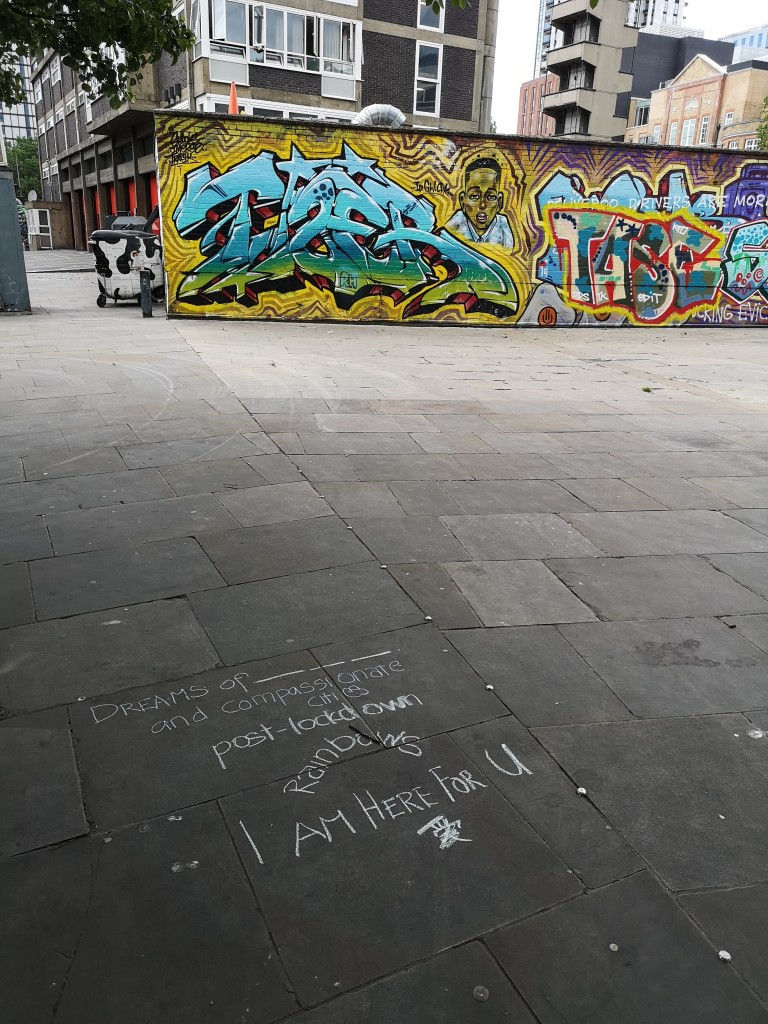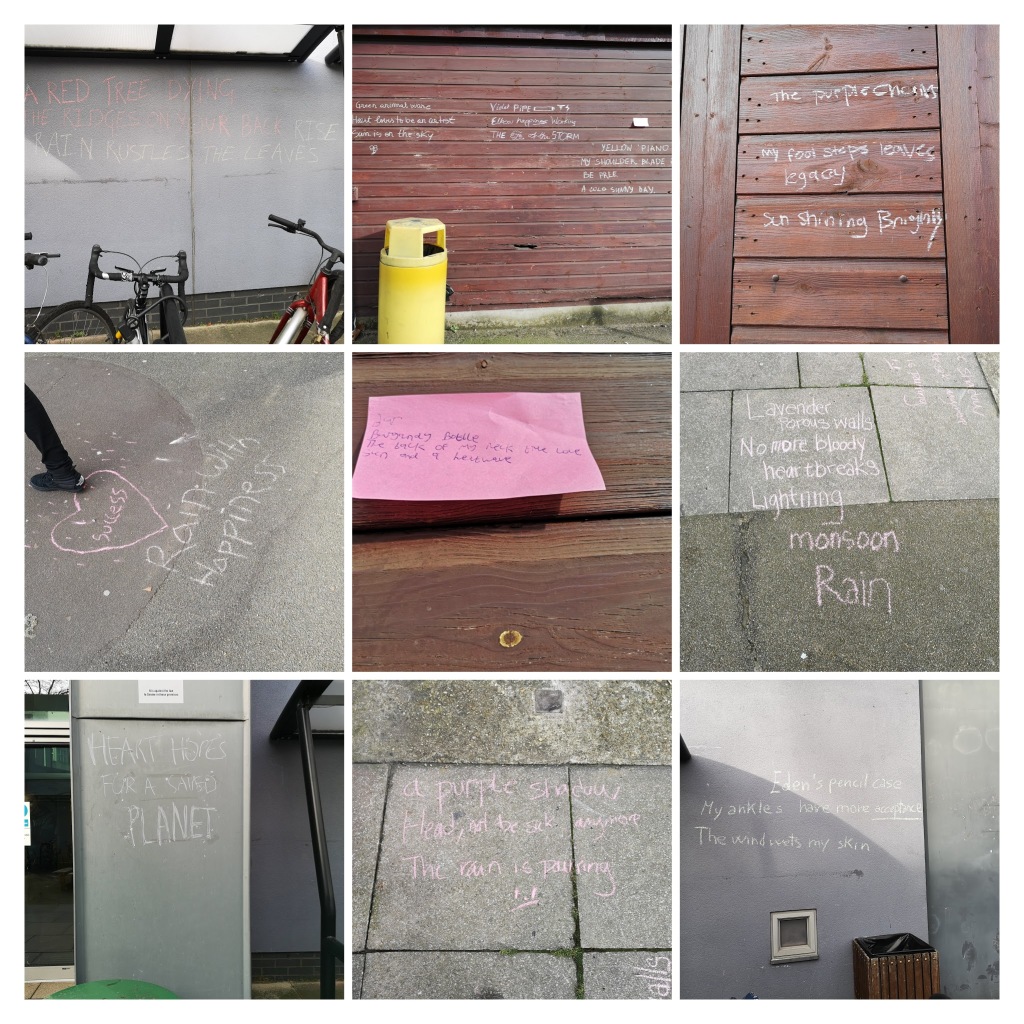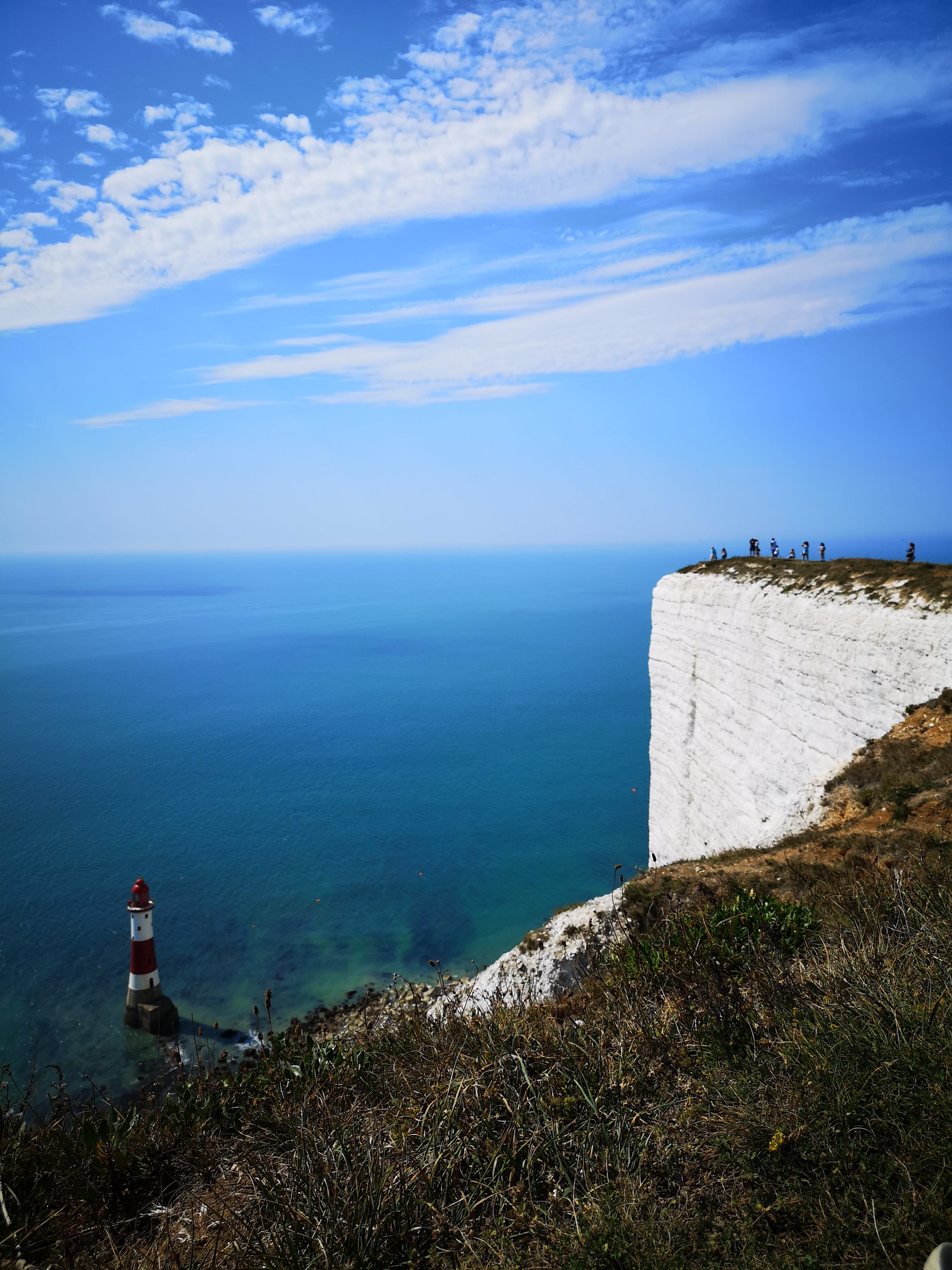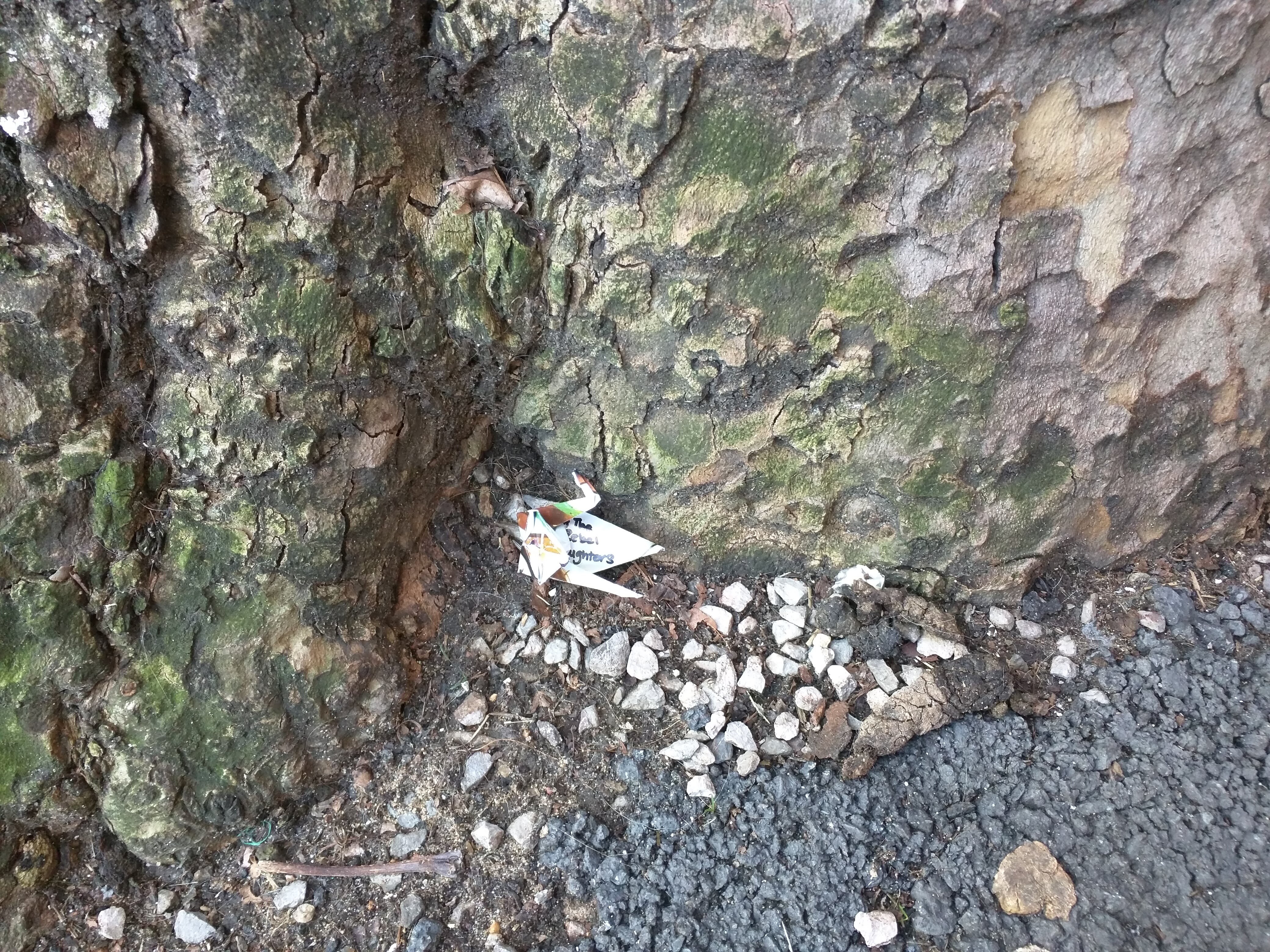
For Dad: All of a sudden, 20 years have passed. The tears still fall even though they shouldn’t. The white foam churns and covers most of the moody grey-blue sea as the wind cries. Like the water swirled above me … Continue reading


For Dad: All of a sudden, 20 years have passed. The tears still fall even though they shouldn’t. The white foam churns and covers most of the moody grey-blue sea as the wind cries. Like the water swirled above me … Continue reading
Panel on ECR Precarity – a virtual bubble bath with Dr Simon Dodi, Dr Tia-Monique Uzor and Dr Adelina Ong. 24 June 2022, 4.15 – 5.15pm, on Zoom

Borrowing from Isabell Lorey, ‘The common is nothing we can come back to’ (Lorey in Puar et al. 2012: 172). Precarity is not a common state of being that we can call upon for solidarity.
As soon as we finish the PhD it begins to tear us apart as we begin to view each other as competitors.
I am also your TAPRA ECR rep…so one ECR told me they had begun to resent people who got jobs for positions they never even applied for.
In the end, the neoliberal university and academic publishing industry extracts value from us at ever lower rates of remuneration, with ever-increasing expectations. Most of the time we are expected to do a lot of the work for free (as academic contributions to the community). University tuition fees increase but VLs (Visiting Lecturers on zero hour contracts) don’t get paid more. Academic publishers sell the books at hundreds of pounds for a copy. Did you know that during the pandemic, the 2nd edition of the Applied Theatre Reader was sold at
Single user – £480.00 this means only one person can access at any one time
Three user – £600.00 this means only three people can access at any one time
No more. Let’s build a new world together
Before the pandemic, I was focused on applying for postdocs. In the 4 years since graduating in 2018, I’ve applied for 6 postdocs and I have been rejected for all of them. My school’s grant advisor had said I’ve applied for everything that I’m eligible for as an international ECR and there is nothing else that I can apply for. But I’ve never ever been successful with scholarship applications and I self-funded my MA (using my savings after working full-time for 8 years) and then my PhD. At one point, I ate chips left behind by a stranger for my conference dinner…But being rejected for funding towards education/career opportunities is nothing new.
I’ve always been sceptical about full time academia but I decided to apply for this full-time fixed term position in the early days of the pandemic because I felt it would be the best way to support young people here given my skills. A colleague was going on research leave and I was familiar with the work, so I applied and got the job in July 2020.
The so-called New Normal of ECR precarity is really the Old Normal on steroids:
I understand that many people want a return to normal. Many have applied for jobs and postdocs and are still getting rejections. If full-time academia is the path that will connect what you love with what you’re good at, what the world needs and what you can get paid for: then don’t stop, keep applying. But if we accept that this precarity is the old normal for full time academia (and is becoming increasingly more so) then why should I be afraid of the precarity of being an independent researcher, trying to set-up my own social enterprise?
There is no going back to normal for me
There are exciting developments in online learning within web 3.0 n the metaverse that I’m excited about because it opens up possibilities for independent researchers like me. Here are some articles if you’re interested:
Hamburg, S. (2022) A Guide to DeSci, the Latest Web3 Movement, Future, https://future.com/what-is-decentralized-science-aka-desci/ (Accessed: 22 June 2022).
Schecter, B. (2021) The Future of Work is Not Corporate — It’s DAOs and Crypto Networks, Future, https://future.com/the-future-of-work-daos-crypto-networks/ (Accessed: 22 June 2022).
I’m going to end with this quote from Arundhati Roy:
Nothing could be worse than a return to normality. Historically, pandemics have forced humans to break with the past and imagine their world anew. This one is no different. It is a portal, a gateway between one world and the next. We can choose to walk through it, dragging the carcasses of our prejudice and hatred, our avarice, our data banks and dead ideas, our dead rivers and smoky skies behind us. Or we can walk through lightly, with little luggage, ready to imagine another world. And ready to fight for it. (Roy 2020)
References:
Hamburg, S. (2022) A Guide to DeSci, the Latest Web3 Movement, Future, https://future.com/what-is-decentralized-science-aka-desci/ (Accessed: 22 June 2022).
Puar, J. et al. (2012) ‘Precarity Talk: A Virtual Roundtable with Lauren Berlant, Judith Butler, Bojana Cvejić, Isabell Lorey, Jasbir Puar, and Ana Vujanović’, TDR/The Drama Review, 56(4), pp. 163–177.
Roy, A. (2020) ‘The pandemic is a portal’, The Financial Times, https://www.ft.com/content/10d8f5e8-74eb-11ea-95fe-fcd274e920ca (Accessed 22.06.22)
Schecter, B. (2021) The Future of Work is Not Corporate — It’s DAOs and Crypto Networks, Future, https://future.com/the-future-of-work-daos-crypto-networks/ (Accessed: 22 June 2022).
14.04.21
Someone once told me that grief is the flipside of love.
I know this to be true.
But recently I sense your presence
in the weathered bark of trees that have survived the winter.
in situations that remind me of conversations we’ve had.
in the green tips of branches that wait for spring.
reminding me that enduring is the quiet capacity
to begin again.
29.09.20
This is an excerpt of my keynote/response to Chang Gao’s Public Intimacies and Supernormal Stimuli and Simon Dodi’s Both/And at Collisions 2020:
‘In this pandemic, I have been thinking about how distance has become a form of care.
I am not only 7 hours away from the pink clouds of daylight that signal a new day in Singapore, where my family and friends are. I am 13 hours and 14 days in quarantine too late for a family funeral.
Hugs that once brought comfort are now experienced as unwanted intimacy.
Touch can be such deadly self-gratification in this pandemic where distance is appreciated as consideration.
Food is no longer synonymous with reunions but perhaps it is warmth in-lieu of that which cannot be conveyed in person. I cannot be there for funerals in person, so I send curry puffs instead.
Beyond the oceans that separate us, a rainbow lights up the tears and worries that fill the sky between us. In this pandemic, distance is not a void or absence – it is filled with care.’
At the end, I asked people to think about the support they would like to receive and to create an abstract gesture of support. And then to make one small adjustment so that our gestures connect across the screens.
This is a part of the picture we made:

05.07.20
Chalk graffiti inspired by conversations with students about their hopes for place and words of comfort for those who have lost loved ones.

05.02.20 Thinking about the climate crisis and all that we have already lost.

15.10.19 Thinking about space, place and placemaking body-weather hope poems for the year ahead. with the new MA Applied Theatre students @CSSD

 A juxtaposition of that which endures
A juxtaposition of that which endures
with that which passes.
Standing at the edge of
a place and a time
that will at once
remain and end.

不知老之将至… No one knows when old age will come… water calligraphy disappearing with every step, the futility of trying to capture time as it evaporates. like youth. Dust leaves no trace of this foolish life lived in constant preparation … Continue reading

the survival of a place we once called home cannot preserve within it the relationships that once made this a place to begin with. despite the emotional attachments formed, the preservation of physical remains cannot safeguard the values, ideals and … Continue reading
11 Jan 2019
A meeting at the intersection of death and rebirth.
She becomes neither male nor female.
She is pure vengeance,
raging against time
defying gods in a society
where women are objects to be won.
A haunting familiar tune.
At ang iyong mata’y biglang lumuha ng di mo pinapansin
(Before you realise it, tears are running down your face)
Nagsisisi at sa isip mo’y. Nalaman mong ika’y nagkamali
(And you realise you were wrong. And you repent.)
Hardly soothing but I remember
being lulled to sleep by these words.
S/he moves like a scorpion about to sting.
There is tenderness in this revenge.
S/he moves to embrace him,
He will never fully appreciate the suffering
he has wrought on this life.
S/he touches his face as he dies.
The darkness engulfs him.
The earth cracks beneath their feet.
One kneels. One stands.
One falls, surrounded by arrows.
As this vengeance, hate and suffering falls away,
another cycle of suffering begins.
Somewhere else.
Only faultlines remain.
Glowing in the darkness.
Until the Lions – http://www.akramkhancompany.net/productions/until-the-lions/

It’s been a rough summer.
But I’ve found true friends in this storm of broken glass.
One year older, one year wiser
or so they say.
Learning to find balance again.
Perhaps I am compelled to write about the areas I find most lacking in myself.
It’s sunny on 26 September after a week of grey skies.
How to find compassion for those who hurt the people I care about?
How to create places of compassion in a hostile world
where retaliating with violence seems almost instinctual?
One year older but I still have a lot to learn.
Sunlight on my face and above
a pale blue sky of dragons chasing clouds.